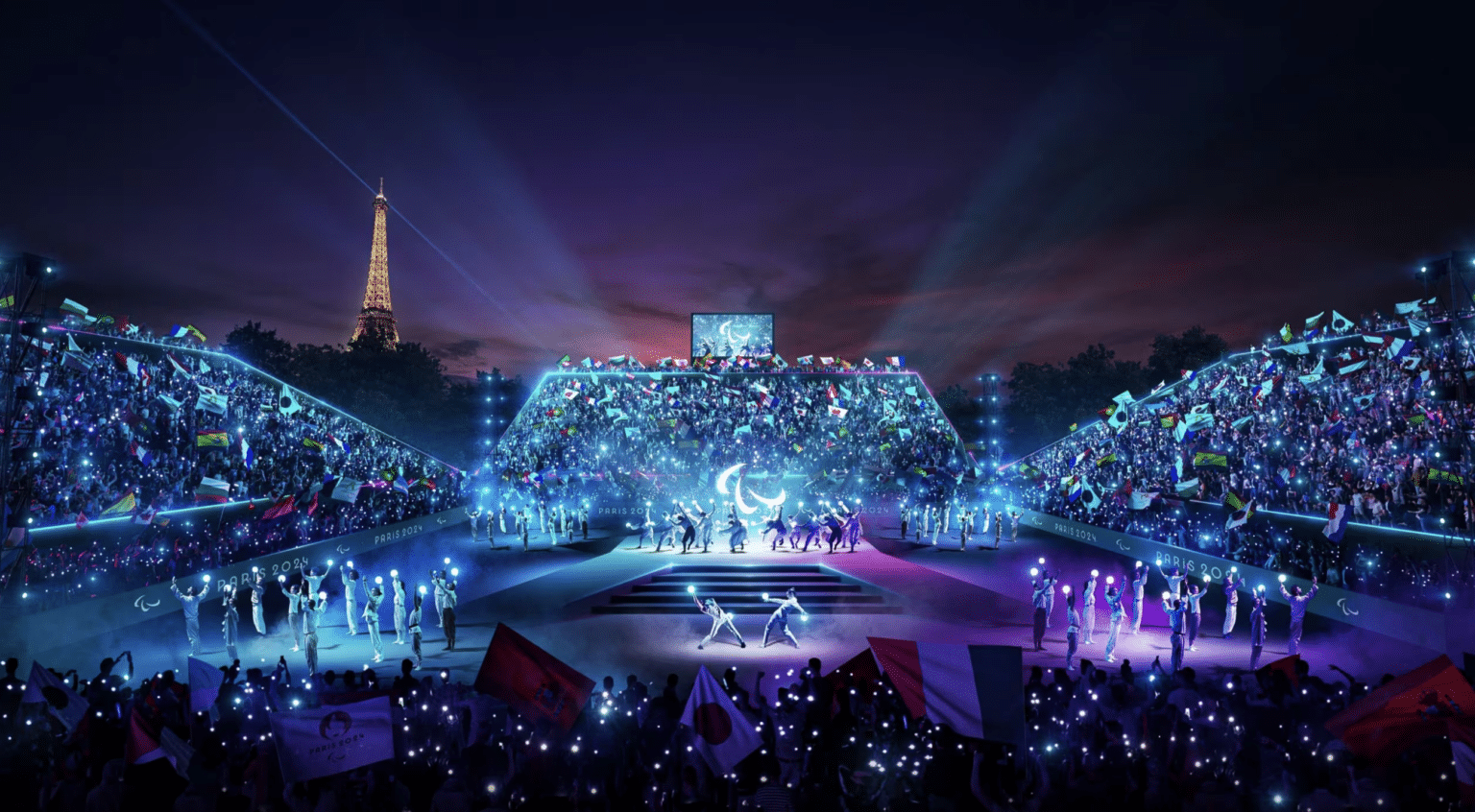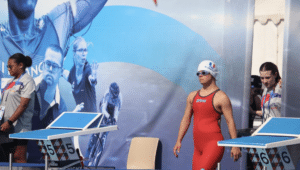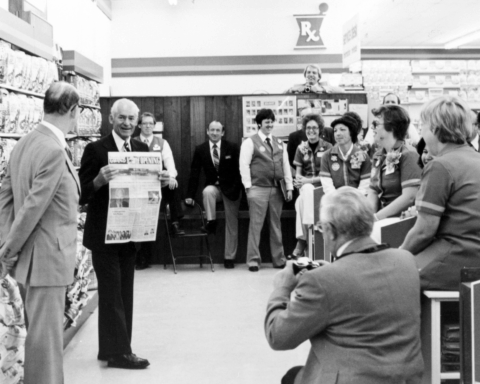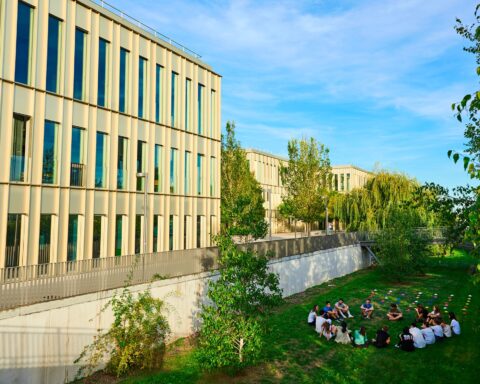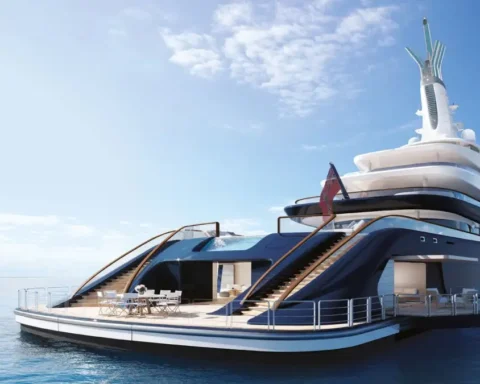A few weeks after the end of the Paris 2024 Olympic Games, the sporting festivities are resuming in the capital. From August 28 to September 8, the Paralympic Games will enliven the City of Light under the eyes of the world. To kick things off, Thomas Jolly once again made a powerful impact with an opening ceremony filled with emotions. An event embodying the values of unity and inclusion, reminding us that there is still a long way to go to further integrate people with disabilities.
It is difficult to replicate such a marked success. Orchestrated by Thomas Jolly, the opening ceremony of the Paris 2024 Olympic Games had captivated the world.
Despite a few inevitable controversies, the event was, on the whole, praised by both the French and international press, even being called the “greatest ceremony in history.”
Far from resting on their laurels, Thomas Jolly and his teams had to imagine a new performance on par with the first to celebrate the start of the Paralympic Games on Wednesday, August 28.
A Poetic Spectacle
The theme was clear: to maintain the festive spirit of the Olympics, which was so well-received on July 26, while raising awareness for the cause of disability. Titled “Paradox,” the three-hour ceremony successfully combined poetic moments with messages of unity.
Under significantly better weather conditions than during the first opening ceremony, 140 dancers, including 16 with disabilities, and 4,400 para-athletes participated in the celebration.
“Sportographie”, c’est l’autre grand numéro de la soirée mettant en valeur les sports et les athlètes paralympiques.#Paris2024 #ceremoniedouverture pic.twitter.com/f2RCVOjFjG
— France tv (@FranceTV) August 28, 2024
The iconic Place de la Concorde was chosen as the backdrop for the event, with its magnificent obelisk standing proudly at the center of the stage.
Throughout the various scenes orchestrated by Thomas Jolly, Swedish choreographer Alexander Ekman, and composer Victor Le Masne, the diversity of bodies was highlighted with a sense of dreamlike wonder.
Among the evening’s highlights, the performance by singer Lucky Love particularly moved the audience. Born with agenesis, the artist from Lille grew up without his left arm.
La performance émouvante de l’artiste Lucky Love au pied de la Concorde ✨
Le direct : https://t.co/3MAKaLC8Ik#Paris2024 #ceremoniedouverture pic.twitter.com/n5Rv42iKX7
— France tv (@FranceTV) August 28, 2024
During his performance, Lucky Love sang his song Masculinity, adapted for the occasion as My Ability (Ma capacité in French). Surrounded by a troupe of dancers, the young man delivered a delicate performance, ending it by removing his suit jacket to reveal his single arm.
This iconic image of the evening quickly spread across social media, thanks to spectators who were charmed by the singer’s talent and charisma.
Games That Can Still Improve
While the atmosphere on Wednesday night was festive and inclusive, some are quick to point out that the Paralympic Games still have significant room for improvement in welcoming all disabilities.
When the competition was created in 1948, its purpose was to accelerate the rehabilitation of paraplegic veterans and restore their dignity. Initially reserved for war-injured individuals, the Paralympic Games gradually began to include athletes with various disabilities.
In 2024, for their 17th edition, the Games will feature 549 events in 22 sports. This diversity of events, which is 200 more than in the Olympic Games, is due to the different categories designed to accommodate para-athletes. In general, the Paralympic spectrum includes physical, sensory, and intellectual disabilities.
However, it is the last category that remains a subject of debate. People with intellectual disabilities represent only 5% of the athletes participating in the Games, or 120 athletes out of the 4,400 other disabled sports competitors.
These numbers struggle to increase from one edition to the next: “The difficulty is that we have only one all-encompassing class, that of the intellectually disabled, which effectively excludes those with intellectual disabilities and additional impairments,” said Marc Truffaut, president of the French federation responsible for athletes with intellectual disabilities (adaptive sports).
`
Athletes with Down syndrome and those with autistic disorders are thus excluded from the competition. For example, Marie Graftiaux, a swimmer with Down syndrome, was limited to her role as a torchbearer. In 2023, she won six gold medals and five silver medals in 12 races at the Virtus Global Games, an international competition dedicated to adaptive sports.
Interviewed after her meeting with Emmanuel Macron on Monday, October 9, 2023, the athlete expressed her desire to one day compete in the Paralympic Games: “It’s my dream to be there, and I’ll fight to the end to make it happen.”
The Accessibility Question
While the very essence of the Paralympic Games is obviously sport, the event also serves to give necessary visibility to disability issues.
Just as the subject of inclusivity needs attention, so does accessibility. While 15% of the world’s population lives with a disability, many major cities, like Paris, still have a long way to go in ensuring that public spaces are accessible.
This reality continues to be highlighted by numerous organizations in the hope of catching the attention of policymakers: “Improvements have been made in transportation, especially for airplanes and trains, to allow visitors to come to the Games. Progress has been made: a fleet of 1,000 taxis adapted for wheelchair users has been established, along with shuttles between train stations and competition sites to enable people with reduced mobility to get around,” notes Pascale Ribes, president of APF France Handicap, in an interview with the newspaper La Croix. “But these measures are merely stopgap solutions: accessibility needs to be planned through an action plan, and this must continue even after the Games are over!”
Though late, the awareness brought about by the 2024 Games in Paris is finally helping to accelerate progress. While making the metro stations accessible remains the most complex challenge to date, Valérie Pécresse, president of the Île-de-France region, addressed the issue two days before the opening ceremony.
She proposed a project to the state and the city of Paris, estimated at 20 billion euros, to extend accessibility for people with disabilities to all Paris metro lines. It’s an ambitious plan, though it has left the Paris City Hall and members of APF France Handicap somewhat skeptical.
“The intention is obviously commendable. But it shouldn’t remain just a rhetorical flourish,” said Nicolas Mérille, national accessibility advisor for the association APF France Handicap.
Read also>Paris 2024: For the Opening Ceremony, Thomas Jolly Proves That He Is Indeed a Beast of the Seine
Feautured Photo: © Paris 2024




